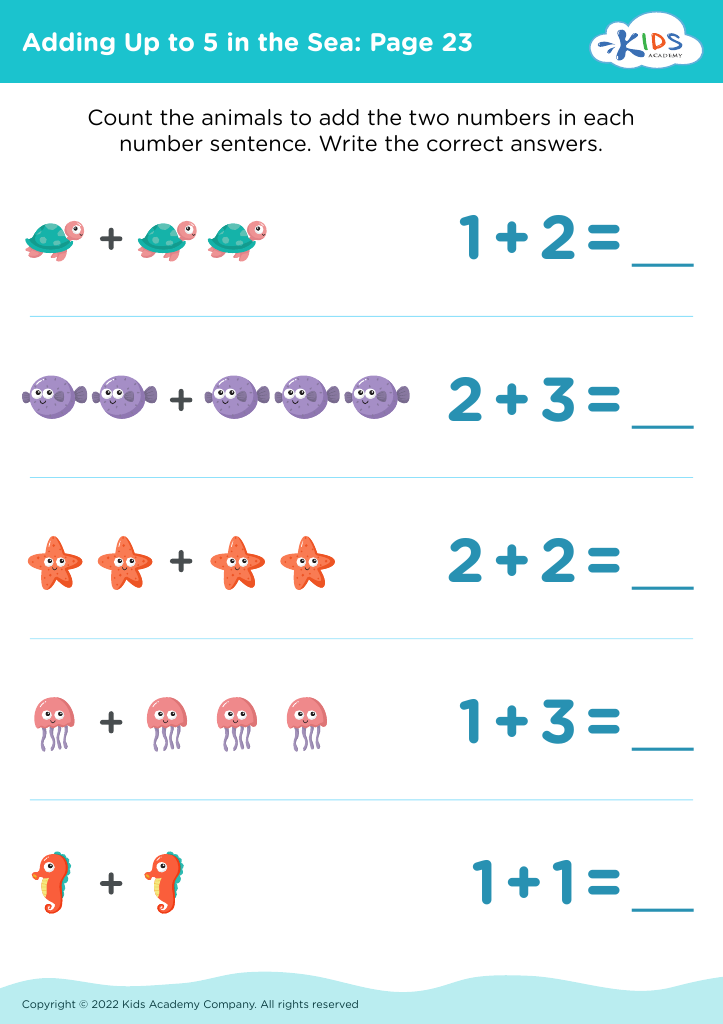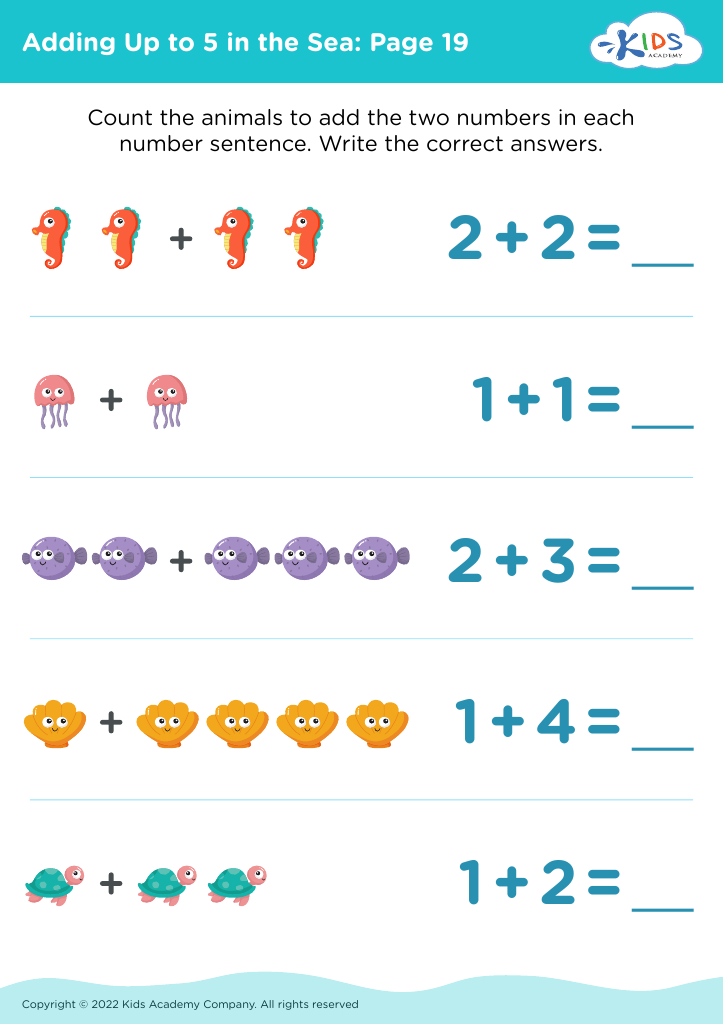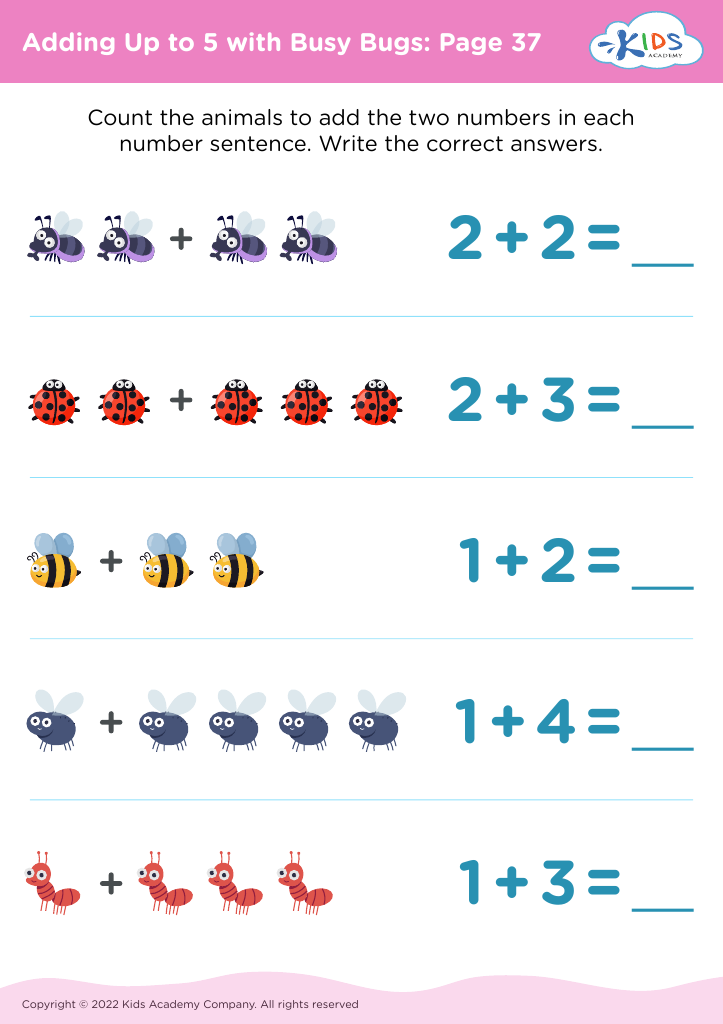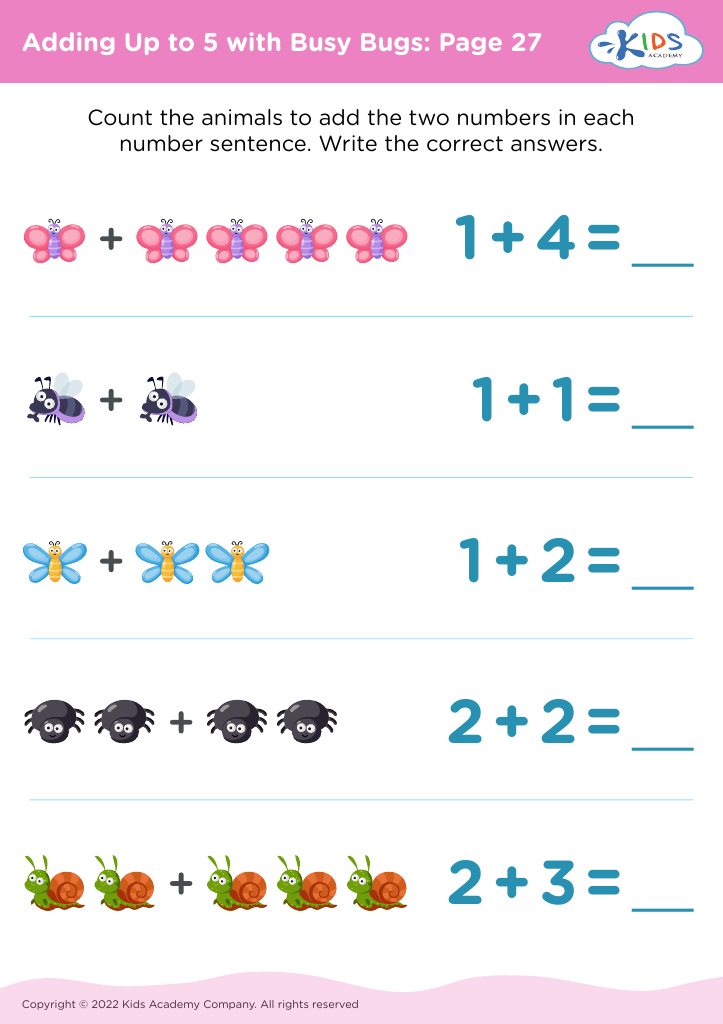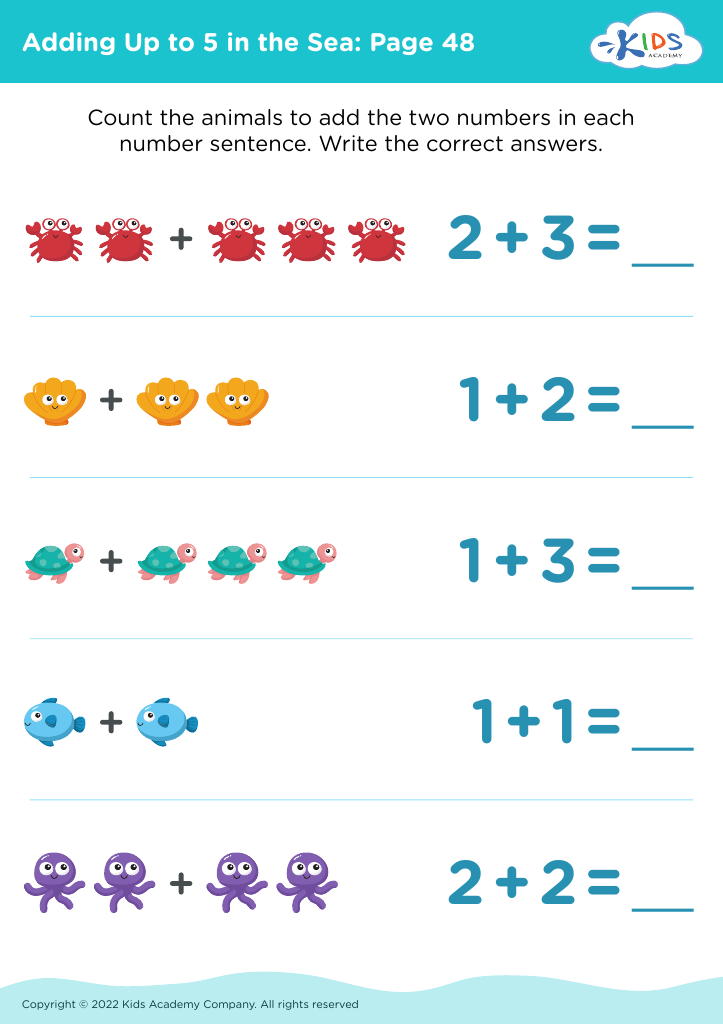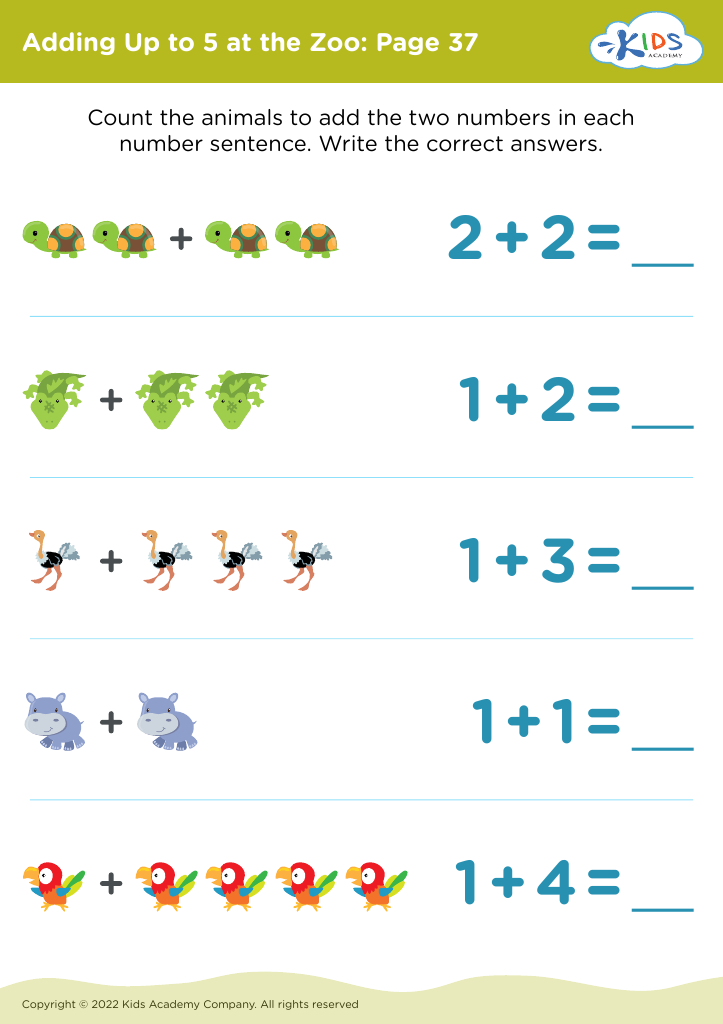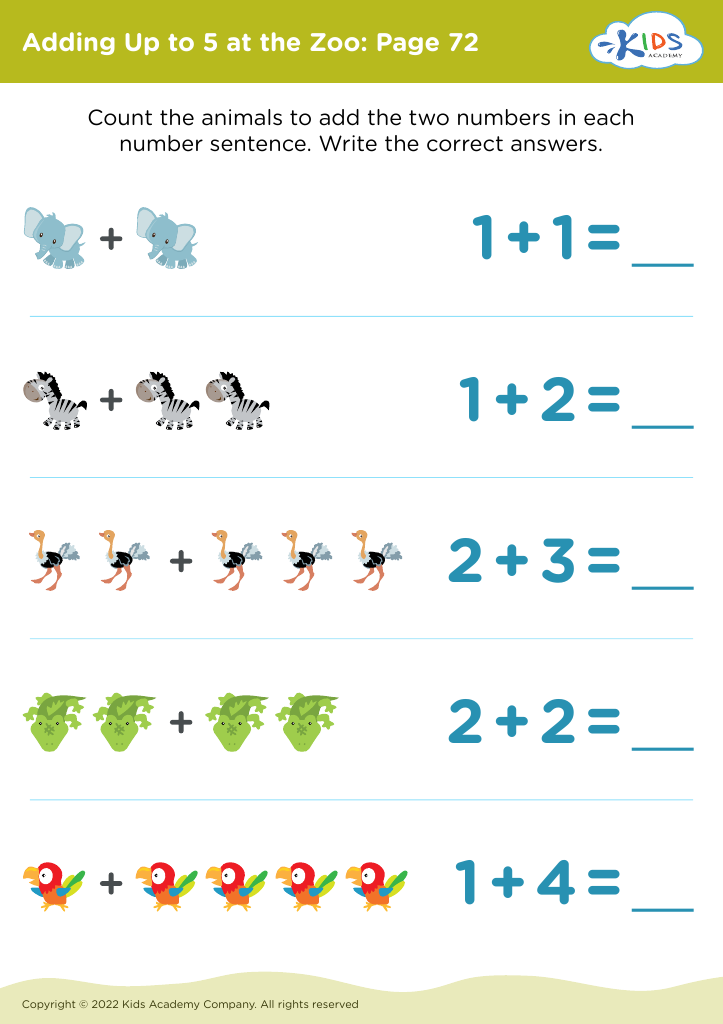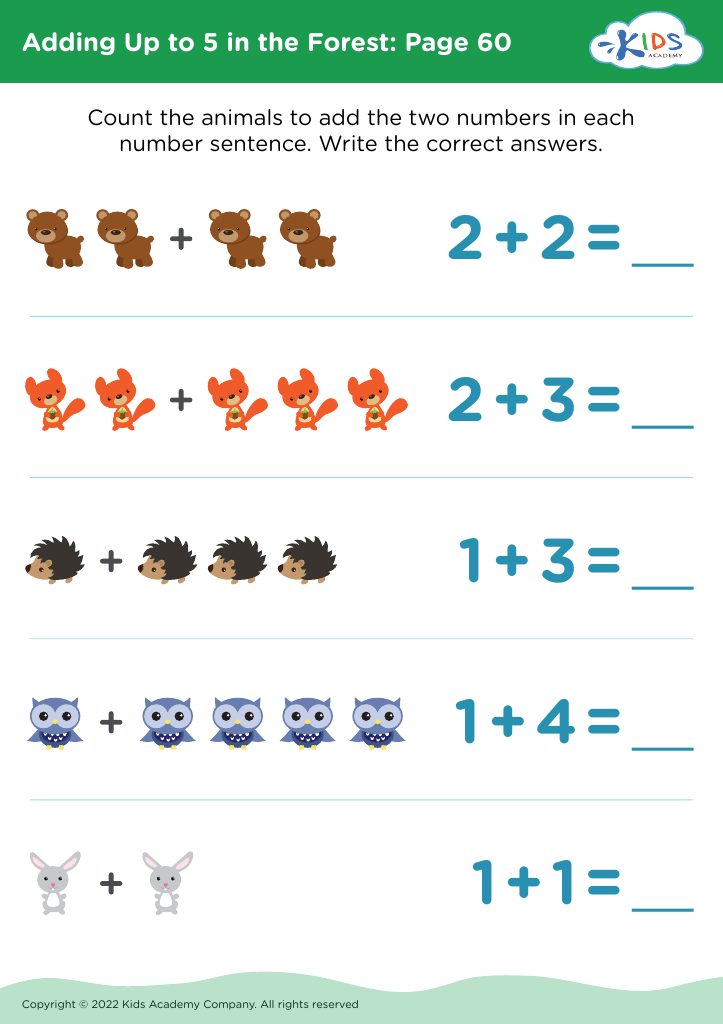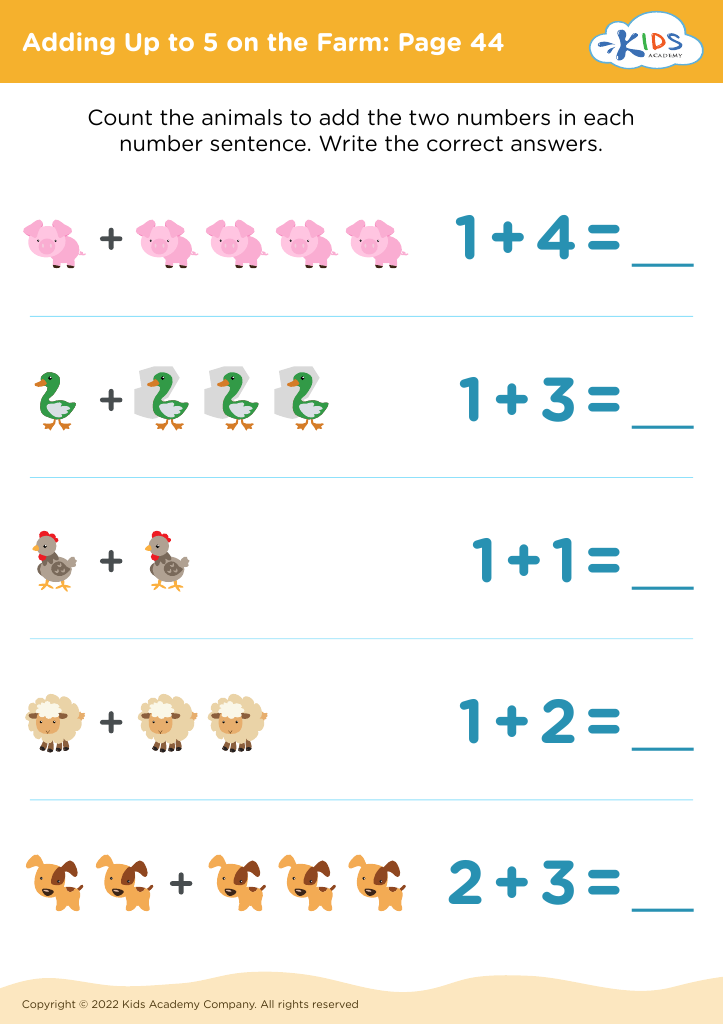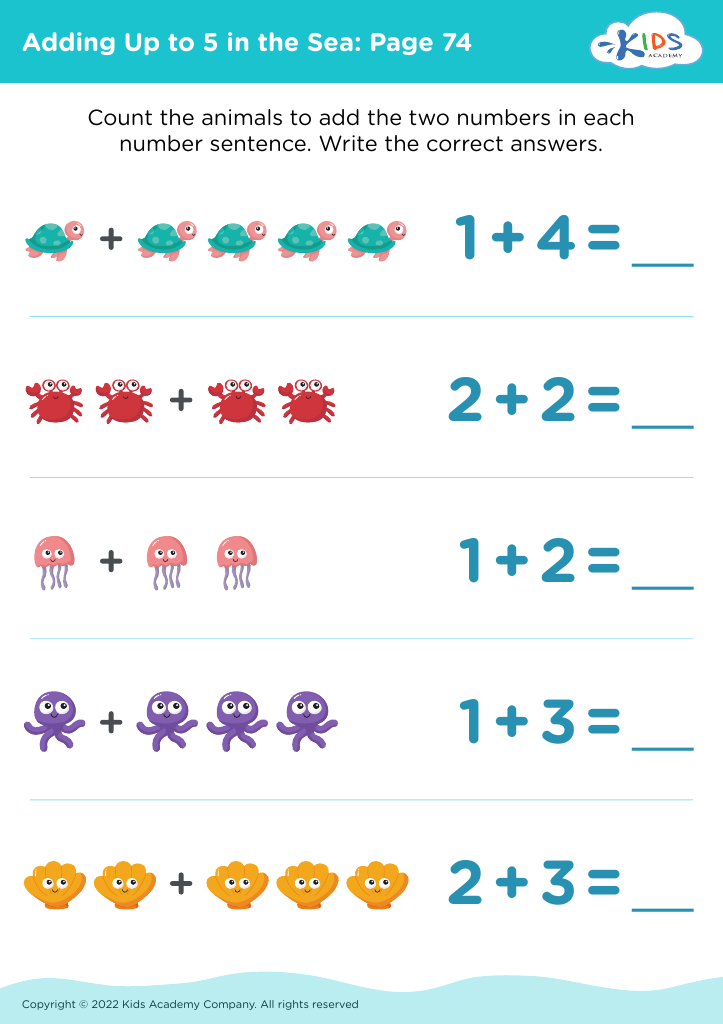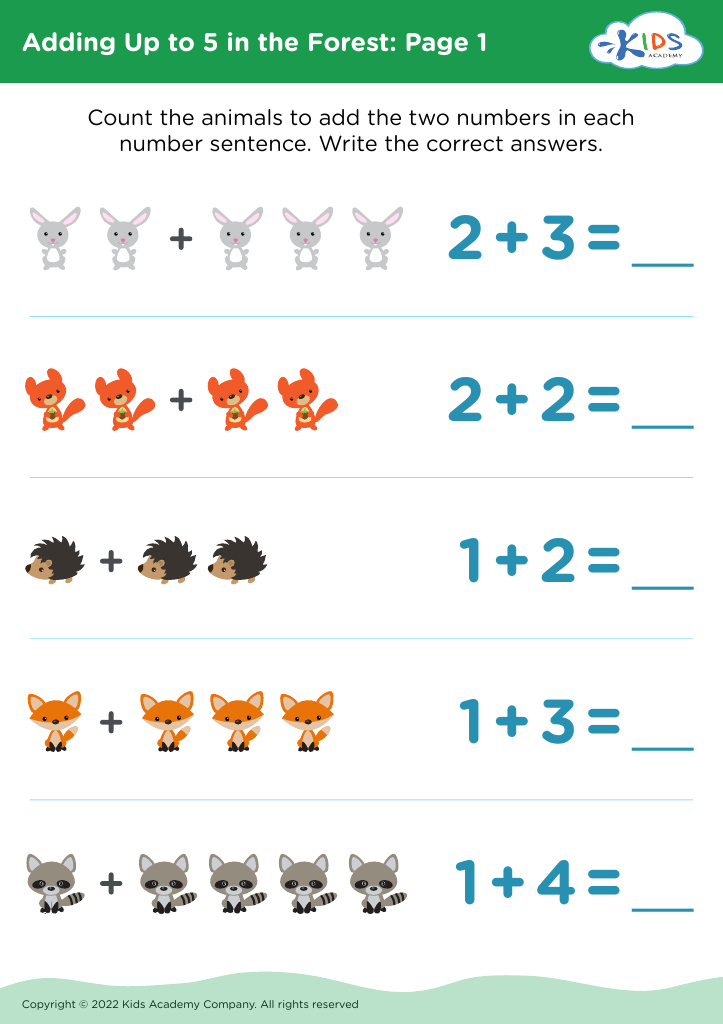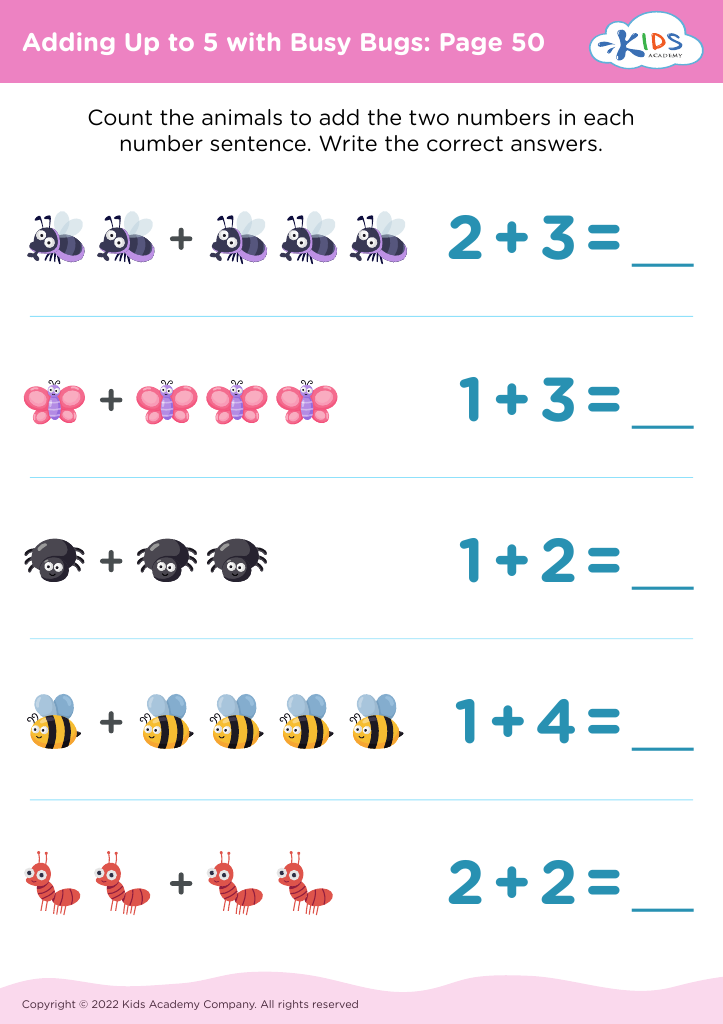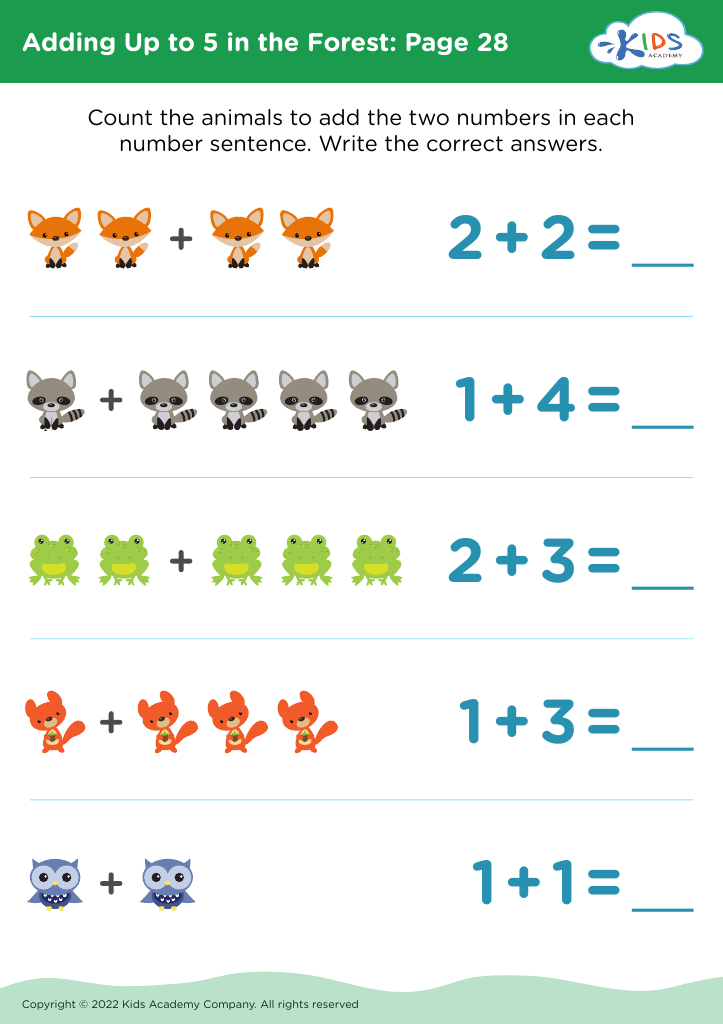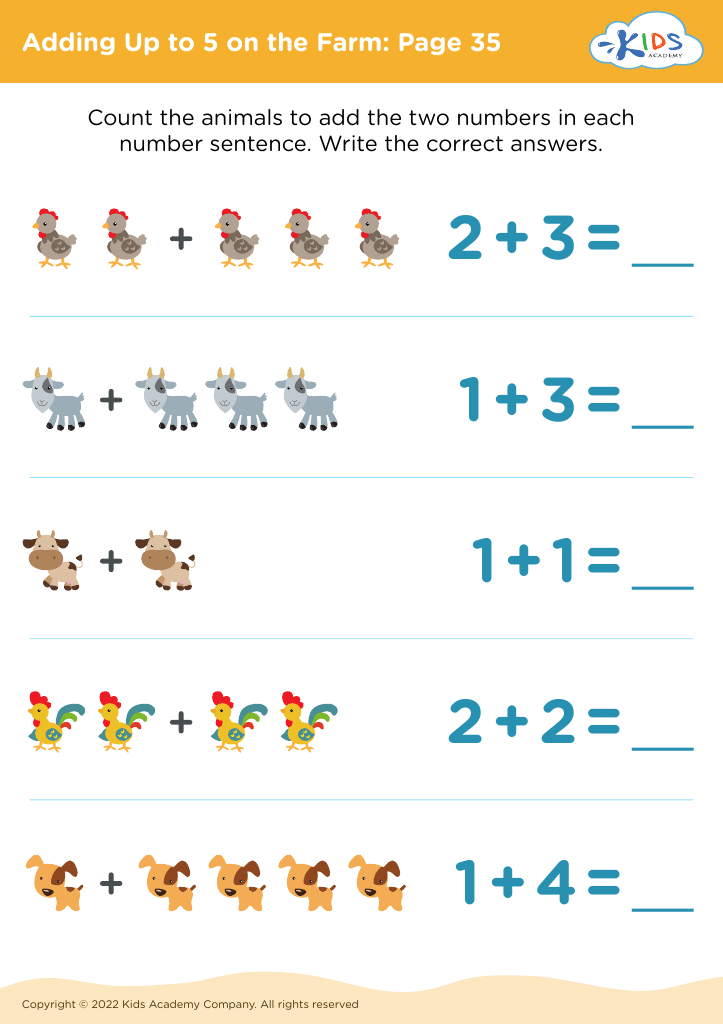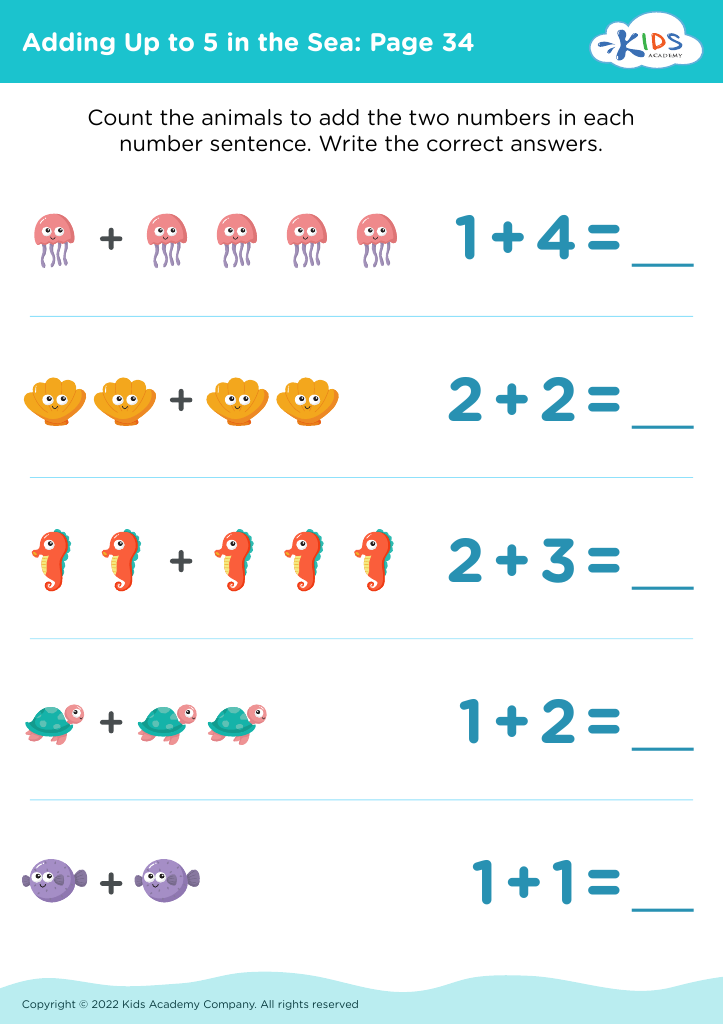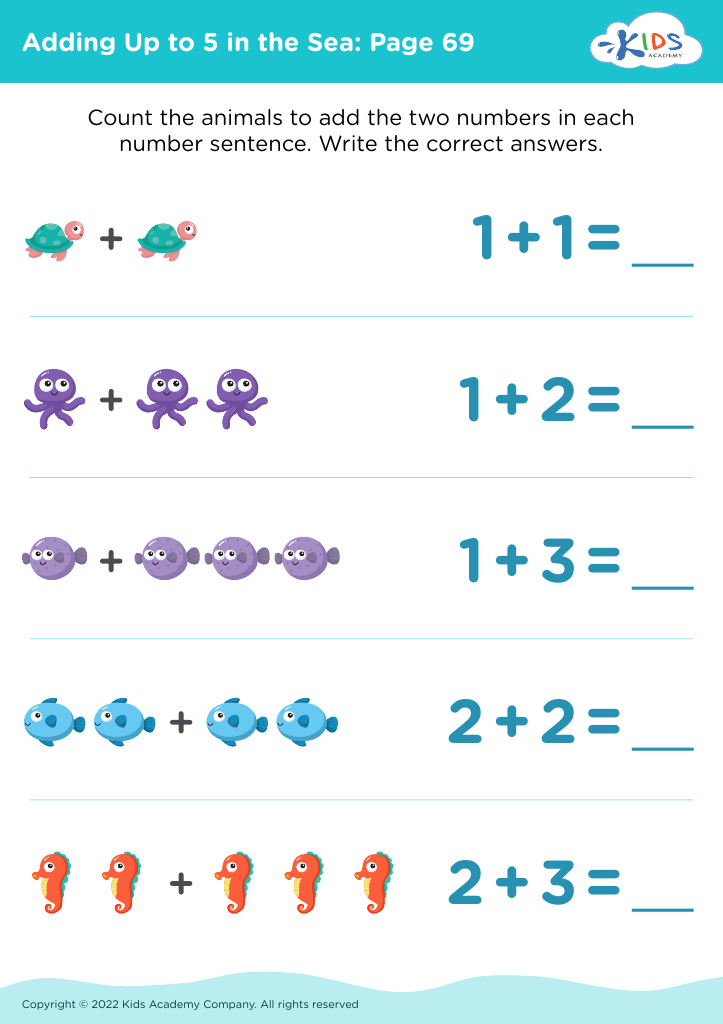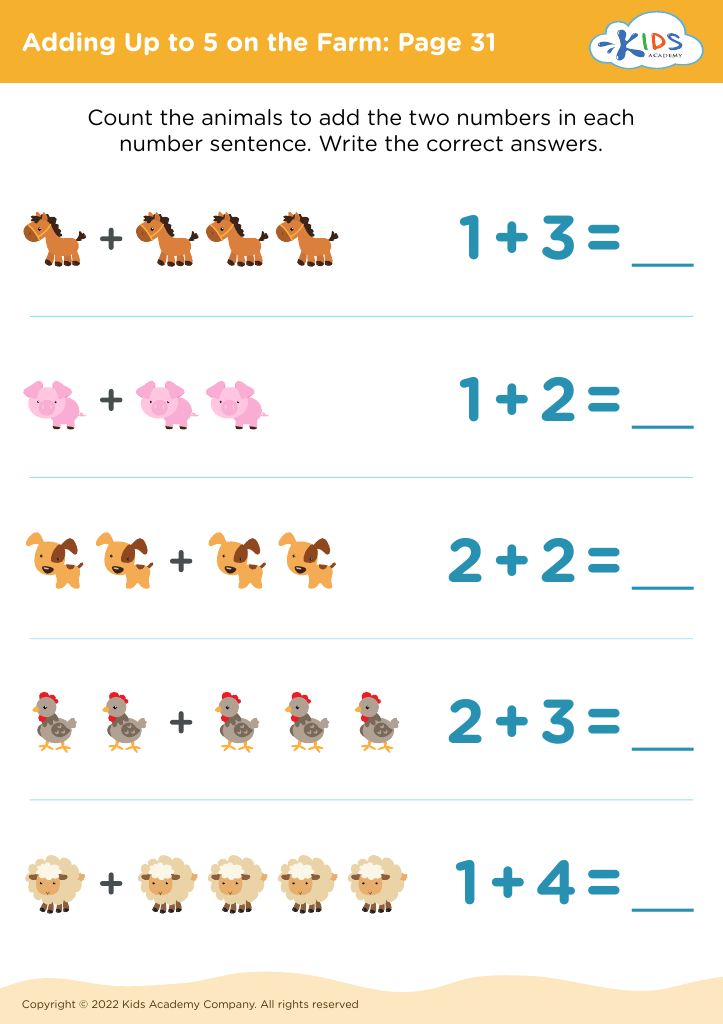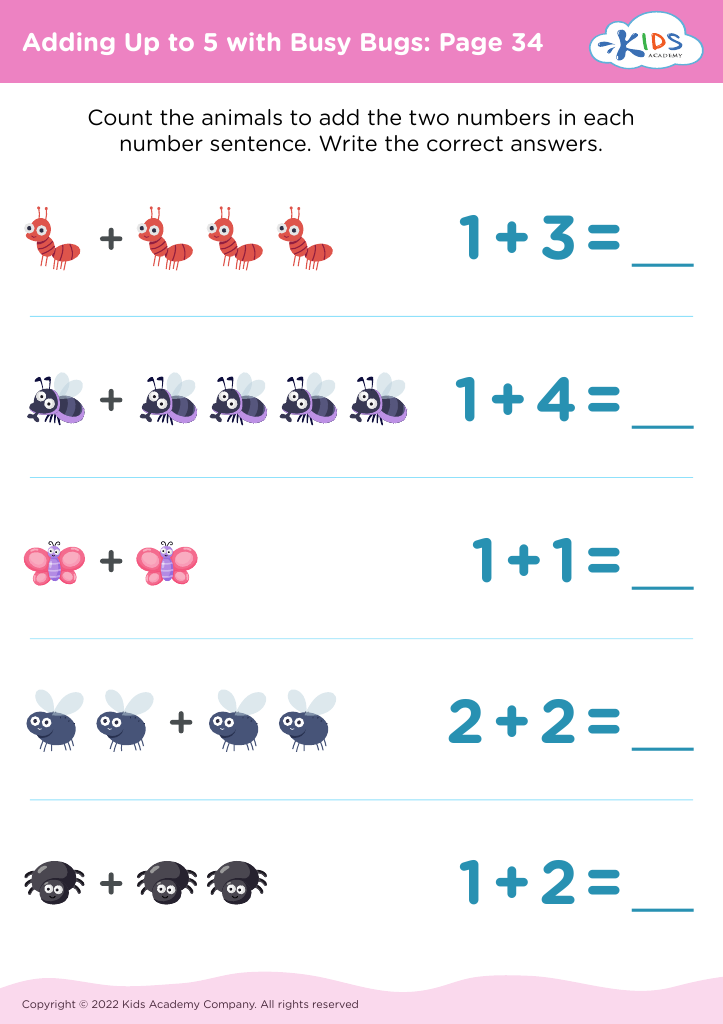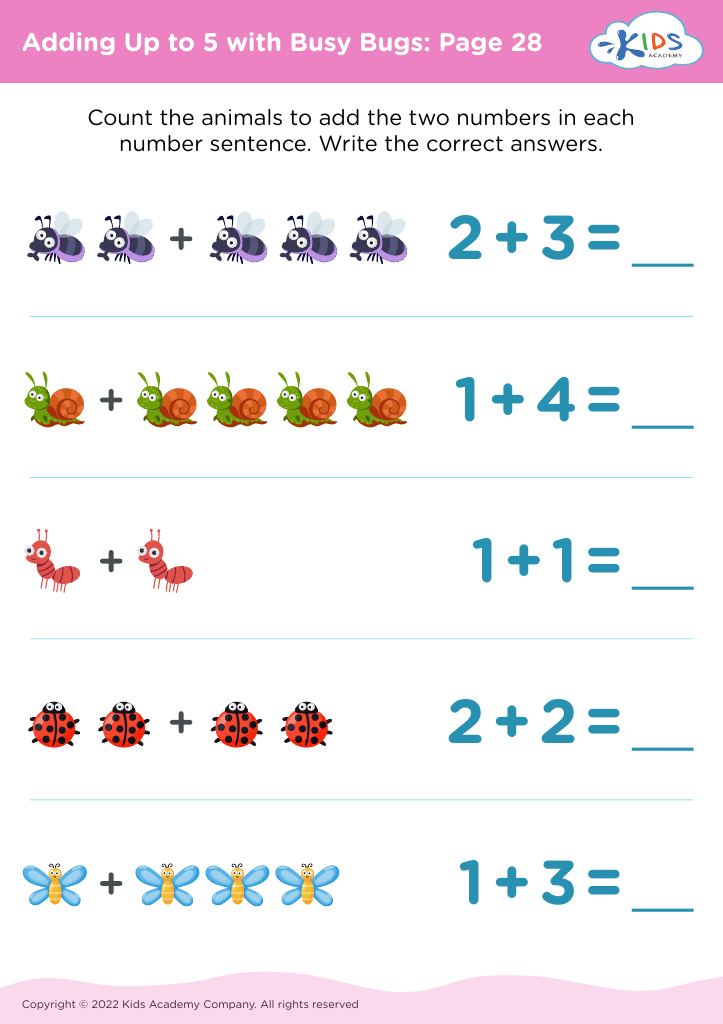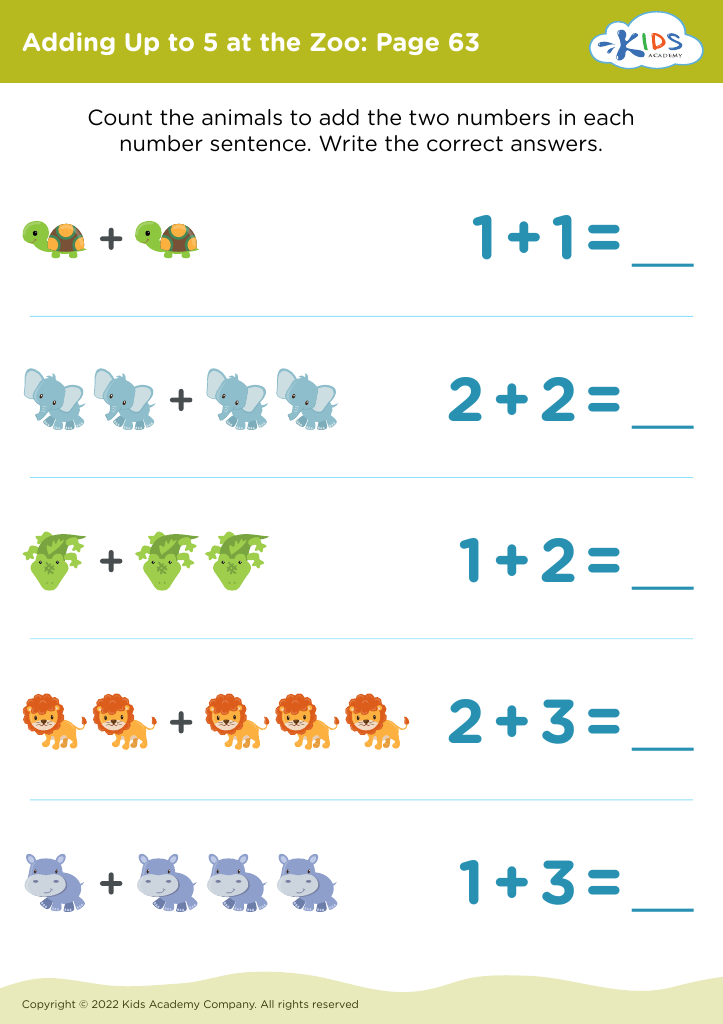Basic Addition Skills Math Worksheets for Ages 3-6 - Page 3
262 filtered results
-
From - To
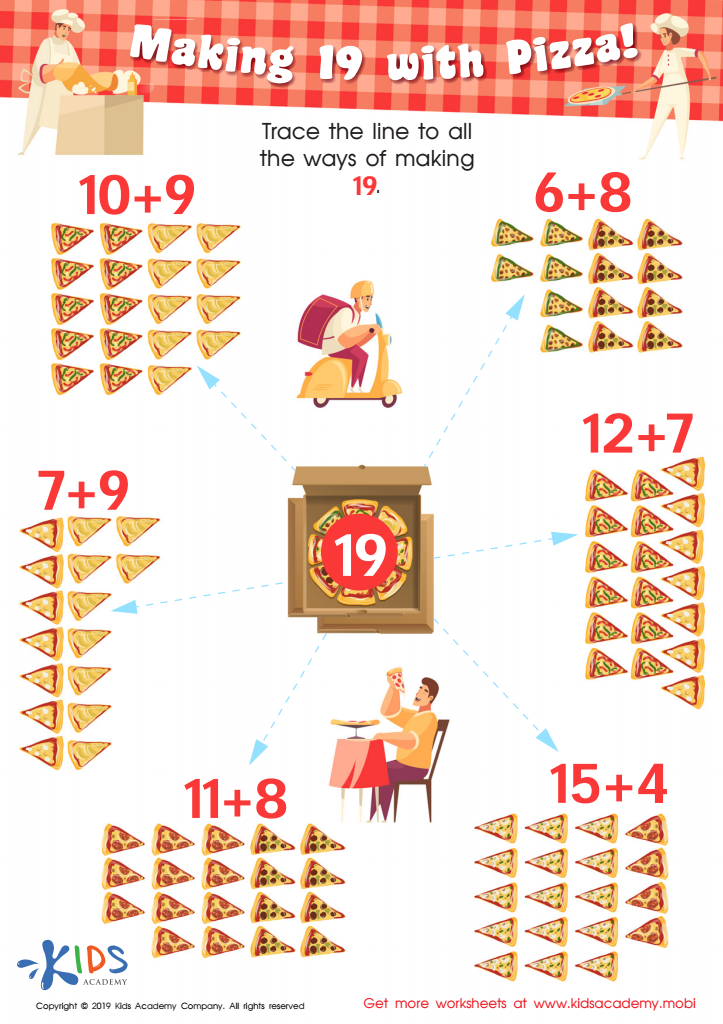

Making 19 with Pizza! Worksheet
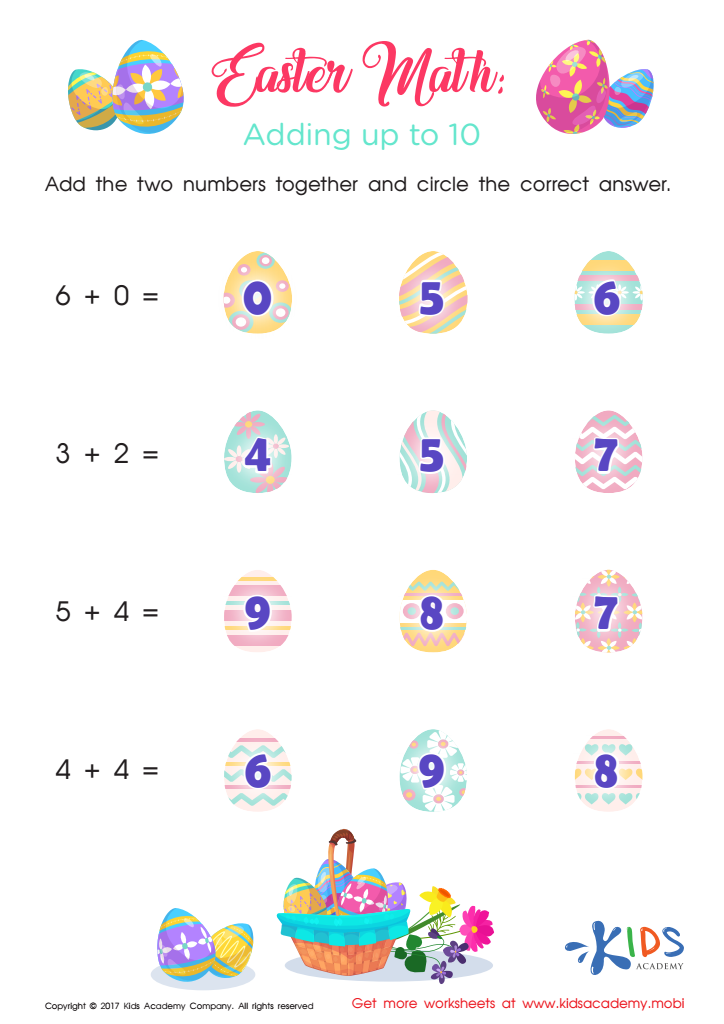

Addition Up To 10 Worksheet
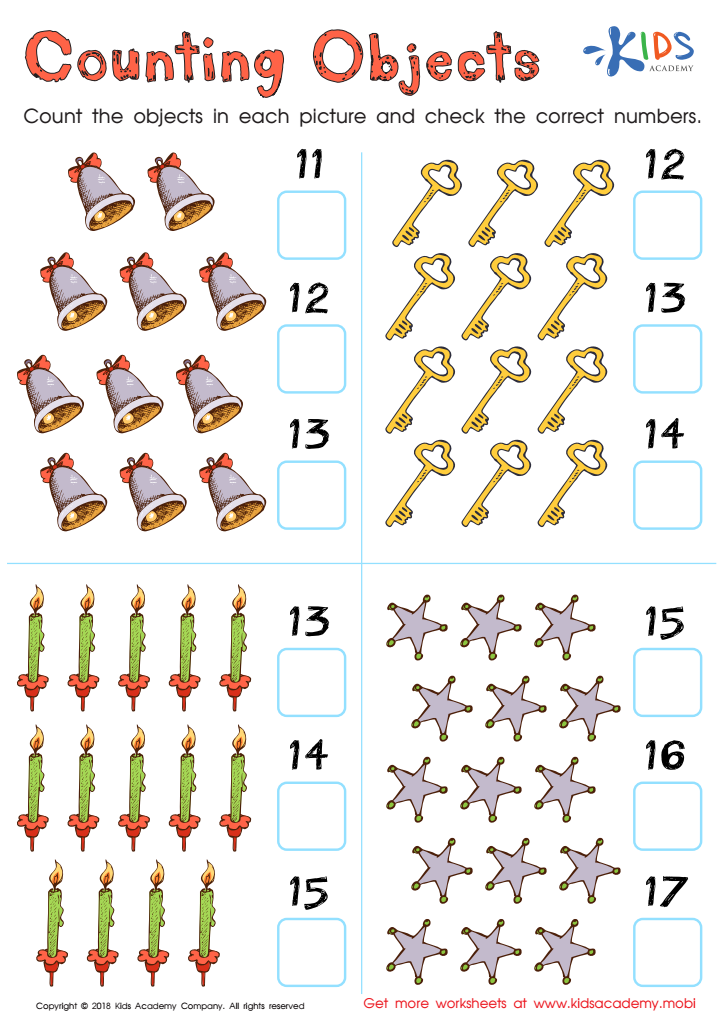

Counting Numbers Worksheet For Kindergarten
Basic addition skills are crucial for children aged 3-6 as they lay the foundation for future mathematical understanding and problem-solving abilities. At this tender age, children are naturally curious and eager to learn. Introducing them to basic addition not only enhances their cognitive skills but also develops their logical thinking and analytical abilities.
As children engage with numbers, they cultivate essential counting skills and number recognition, which are vital as they progress in their education. Understanding basic math concepts builds confidence, and positive early experiences with mathematics can foster a lifelong love for the subject.
Additionally, these skills are integral for daily activities and real-world situations, such as sharing objects and managing quantities. They encourage social and emotional skills as well, as children learn about cooperation, taking turns, and resolving conflicts during mathematical play.
By promoting basic addition skills, parents and teachers give children a critical advantage, preparing them for more advanced concepts in the future. Ultimately, prioritizing early math education enriches a child's overall learning experience, supports their academic growth, and equips them with essential life skills.
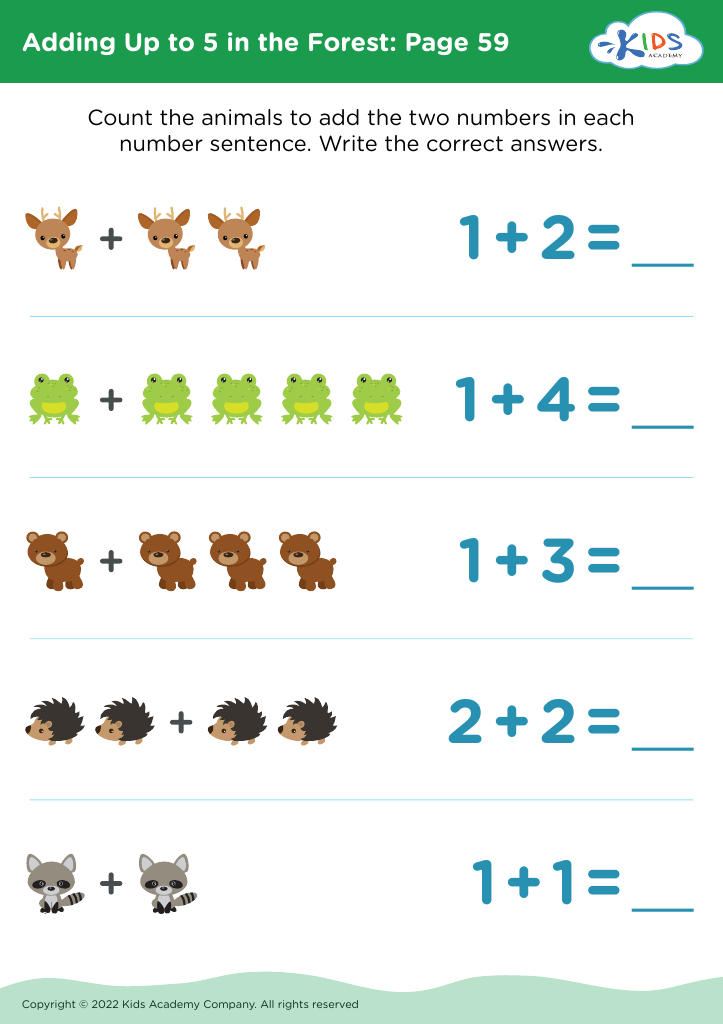
 Assign to My Students
Assign to My Students
